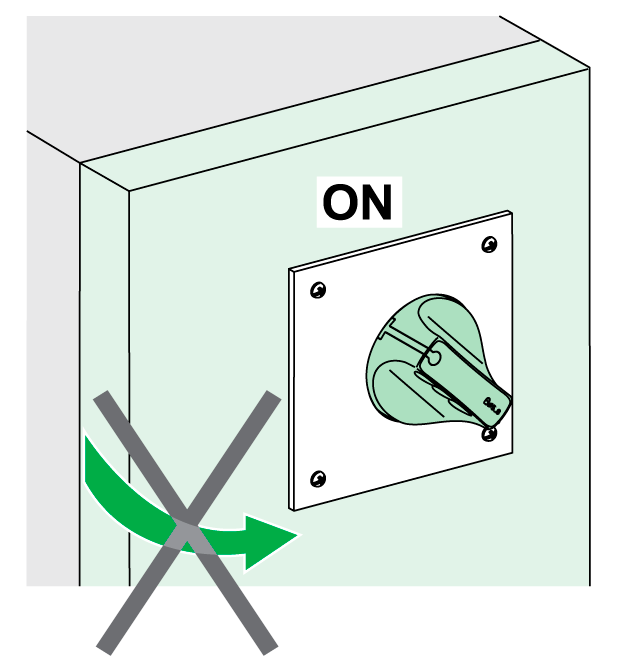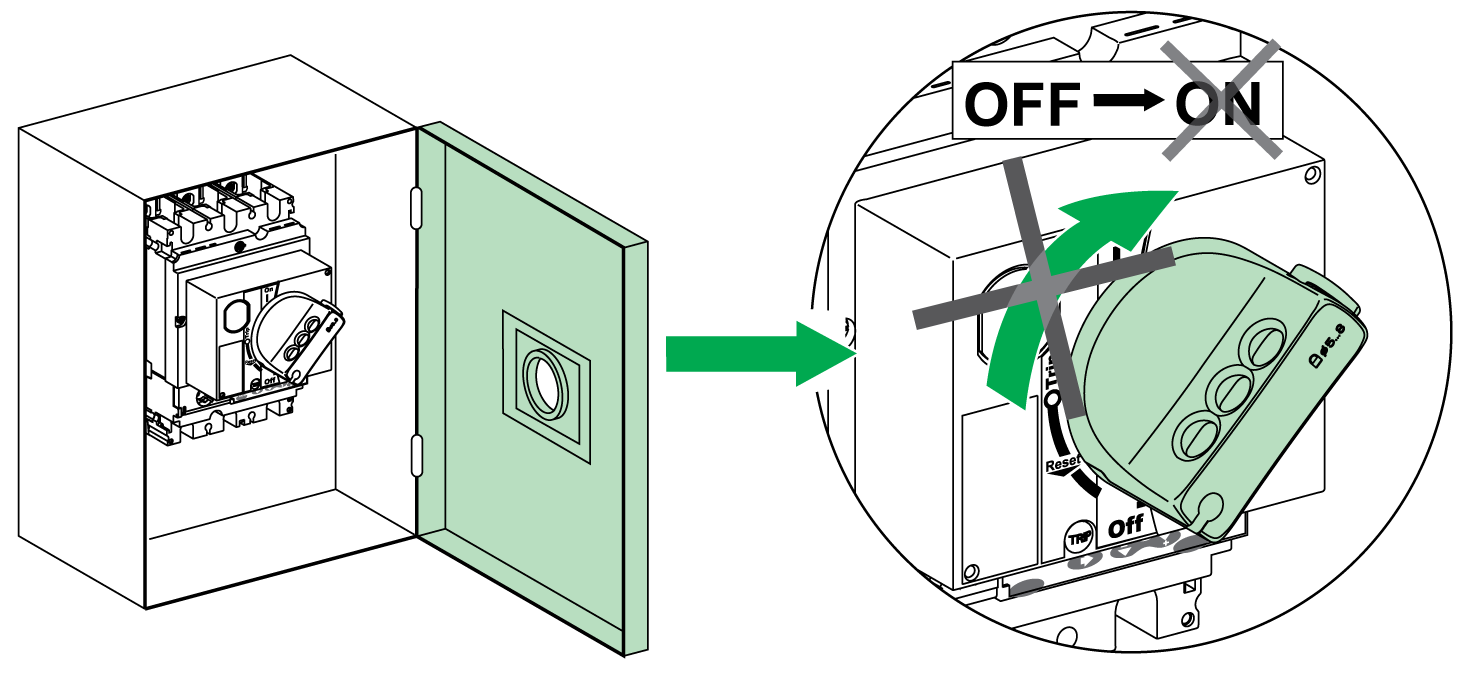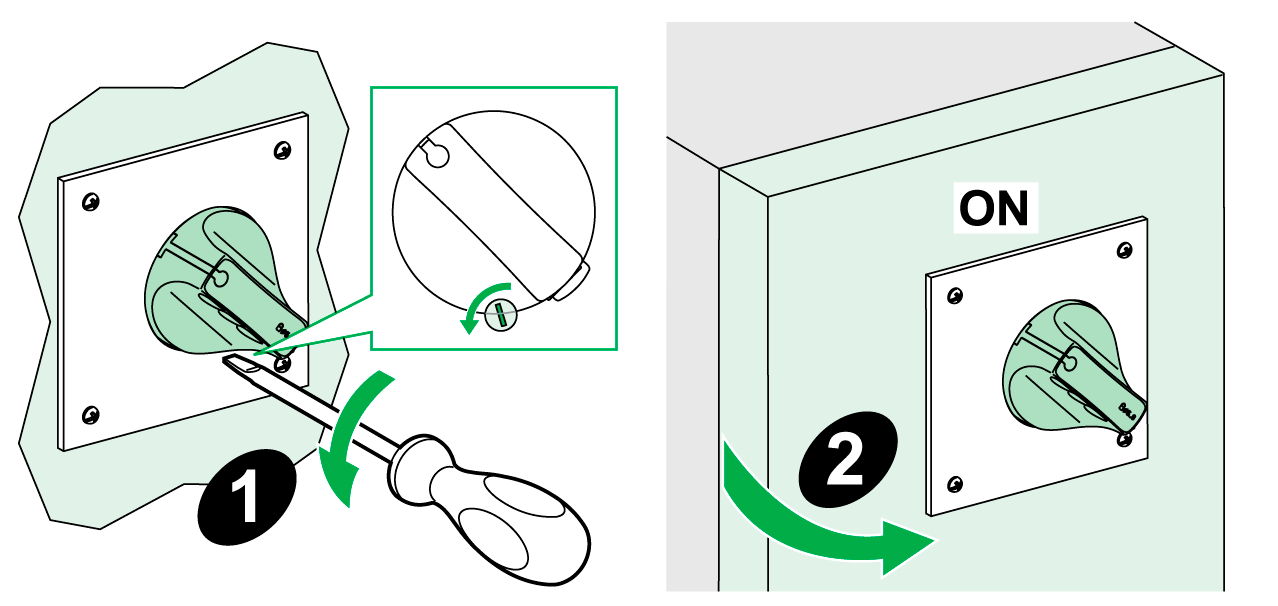Locking a Device With Direct Rotary Handle
Lock handle with up to three padlocks (not supplied).
|
Handle locking |
Padlocks |
|
|---|---|---|
|
|
Padlocking (standard) only in the O (OFF) position. |
Lock handle with up to three padlocks (not supplied) with shackle diameters of 5–8 mm (0.2–0.3 in). |
|
|
Padlocking in the two positions I (ON) and O (OFF) (optional). This locking option requires the removal, adaptation, and reinstallation of the rotary handle. |
Lock handle with up to three padlocks (not supplied) with shackle diameters of 5–8 mm (0.2–0.3 in). |
NOTE: Locking the rotary handle in the I (ON) position does not disable the device protection functions. If there is an electrical fault, the device still trips. When unlocked, the handle moves to the Trip position. To return the device to service, follow the resetting instructions.

|
Locks the door in the closed position when the device is in the I (ON) position or in the Trip position. |

|
Helps to prevent the direct rotary handle from being moved to the I (ON) position when the door is open. |
|
|
|
HAZARD OF ELECTRIC SHOCK, EXPLOSION, OR ARC FLASH |
|
Only qualified persons are authorized to disable the door lock. |
|
Failure to follow these instructions will result in death or serious injury. |

|
It is possible to temporarily disable this lock to open the door when the device is in the I (ON) position.
Disabling this lock requires modifying the rotary handle. For more information, refer to GHD16295AA, TeSys GV5 / GV6 - Rotary Handle MCC Adaptor Plate - Instruction Sheet. |
If the lock has been disabled, the following direct rotary handle functions are inoperative:
oDoor locking
oPreventing the device from being closed when the door is open